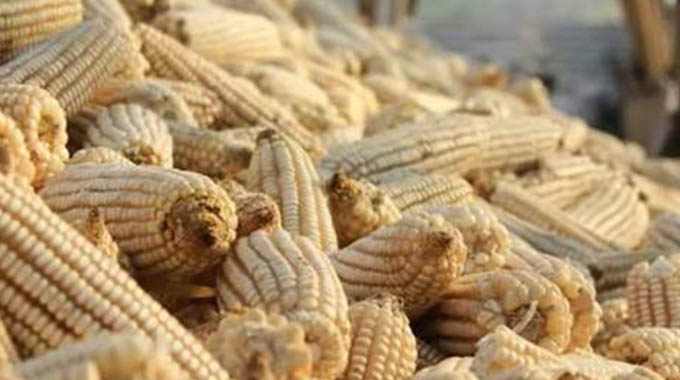Editorial Comment: Timely interventions for food security key

A stitch in time not only saves nine; it can save lives and resources.
The challenge confronting many dependent on agriculture for their livelihoods, after losing livestock to diseases, is how to prepare land for their cropping programmes ahead of the 2019/2020 agricultural season.
An estimated 62 000 households this past Sunday, received the best assurance against hunger, following the launch of a tillage unit designed to provide draught power to vulnerable rural farming communities.
The District Development Fund (DDF) on Sunday, launched a scheme in Mashonaland West, under which 65 tractors will provide free tillage to thousands of vulnerable families in resettlement and rural areas in the province.
The benefits achieved by rolling out the tillage and inputs programme will represent significant financial savings for the country on imports, and psychological dividends on families likely to be impacted by the scheme. Food insecurity tends to immobilise families and consequently limit their contribution to the development of their communities or the nation.
This timely intervention needs to go beyond one province because it is not only Mashonaland West that has concerns about how to manage in circumstances where communities have lost their cattle and subsequently draught power.
There are other areas in the country that suffer from deficits of draught power, hence the need to ensure the programme extends to other parts of the country.
In so doing the country will have provided a buffer against hunger for communities because each household will have land prepared for planting as well as seed, fertiliser and chemicals — sufficient to provide families with their food requirements for a season.
In the process, the country will have saved on importing food and grain to feed communities rendered vulnerable after they lost livestock on which they are reliant for draught power.
In rolling out the programme to cover other provinces and thus increase the hectarages put under crops, farmers with own equipment could be encouraged to prepare land for others around them, but who do not have the resources to do so this season.
The DDF could provide fuel to farmers with tractive power in a given area, while the beneficiaries could in return provide labour to their benefactors. However, this might require coordination by either the DDF or Agricultural Extension Services (Agritex/Arex) or community/traditional leaders for the arrangement to operate more effectively and be free from disputes.
The model under which the Zimbabwe United Passenger Company (ZUPCO) has roped in private players, creating a pool of vehicles providing affordable public transport would be worth studying before rolling it out.
Farmers roped into the scheme would be able to draw fuel from the DDF. This would be done in order to avoid dodgy sources whose fuel could end up damaging tractors, thus rendering participation by farmers extending their equipment to the programme costly.
If this is not workable, then provision of inputs and Zero tillage should be encouraged. Always, the driver for this recourse should be the desire to ensure that households are able to produce food sufficient for their immediate requirements.
Organisations such as Foundation for Farmers that have been successfully operating in selected areas in the country promoting zero tillage could be roped in to be lead influencers in communities in their surroundings.
In fact, there could be a case for promoting zero tillage on a wider scale because while not reliant on draught power, the method addresses other factors such as moisture retention and soil conservation with beneficial outcomes.
Outside of the rural communities that are the immediate beneficiaries of the tillage programme, there are pockets of vulnerable households or groups that annually require assistance in their food requirements. In this particular case orphanages, old people’s homes, children’s homes and safe houses for victims of various abuses.
They, too, might require some form of assistance that guarantees their food security.
But as with all well-meaning initiatives, there is always the temptation by people with selfish motives to hijack the programme for their own benefit.
In the past we have seen abuse and corrupt activities derailing noble schemes.
This cancer should not be allowed a foothold into this programme.
There is need to ring-fence the tillage and inputs programme from such potential abuse by individuals who might see the programme as an opportunity to save on inputs, fuel for their cropping programmes and the cost of wear and tear, and repairs to their own equipment.
In fact, greater productivity could be realised from the land if districts or wards through the country have tillage units for communities and farmers.










Comments